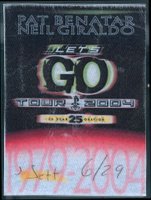
Before
American Idol hit the airwaves in 2002, I was against it. Reality TV was at the height of its popularity, and I was sick of it. Idol sounded like a bad idea.
I skipped out on the first few episodes, which was easy because I was working second shift at the time. But then I had a night off. I flipped around the stations, and Idol was the least objectionable program on. I watched, and wasn’t immediately impressed.
The hosts, Ryan Seacrest and Brian Dunkleman, were annoying, Simon Cowell was a pompous jerk, Randy Jackson said ‘aeieet’ too often for my taste, and - was that Paula Abdul, boy I wondered what happened to her.
But the contestants were really giving it their all. I became a regular viewer, and remain one to this day.
So what is the appeal of American Idol? For me, it’s like minor league baseball.
When you watch a major league baseball game, what do you see? For the casual viewer like myself, who isn’t obsessed with the statistics of the game, I see a bunch of overpaid players, who have nice contracts and no need to show a little hustle.
In the minors, players dive for the ball, throw it as hard as they can, and push themselves to the limit. They are trying to get noticed so they too can have a shot at the big leagues. The minor leagues are what baseball should be—a fun game to watch.
The music industry is the same. After watching performers like Oasis, the Spice Girls, Hole, Smashing Pumpkins, the boy bands, the teen girls, and so on, I was becoming bored with the music industry. Musicians weren’t trying anymore.
Idol, whether you like it or not, was just what the industry needed. It allowed us to have a personal connection with these emerging artists.
We got to hear their stories, like how Kelly Clarkson moved to California for her shot at stardom, only to return home with her tail between her legs.
We saw Justin Guarini shamelessly flirt with Paula.
We watched in horror as early favorite Tamyra Gray was voted off after one bad performance. For the casual fans, who were used to having ‘hot new’ artists thrown at them from out of nowhere, Idol was an entirely new experience. We had a hand in creating a pop star.
Kelly Clarkson is still my American Idol, and I don’t care what anybody thinks about that. Clarkson rocks. She has two great CDs under her belt, and she is a solid performer.
None of the other Idol winners — Ruben Studdard, Fantasia Barrino, and Carrie Underwood, runners up — Clay Aiken, Diana DeGarmo, Bo Bice, or this year’s contestants hold a candle to her, and probably never will.
Idol is still an interesting show, but it’s not as good as it was. The talent pool is becoming depleted, and the format is slowly getting stale.
But Idol is still an important show, especially to the casual fan who want's to connect with music.
It's like watching
VH1’s Behind the Music, before the music has had a chance to happen.






































